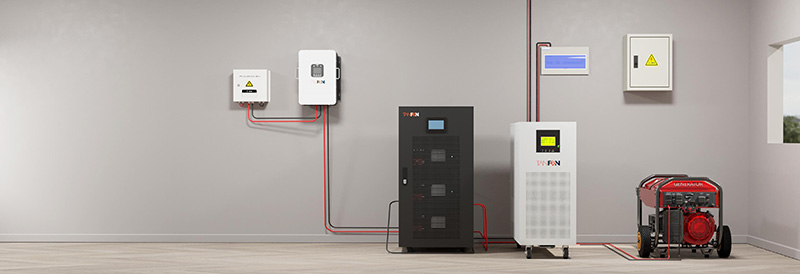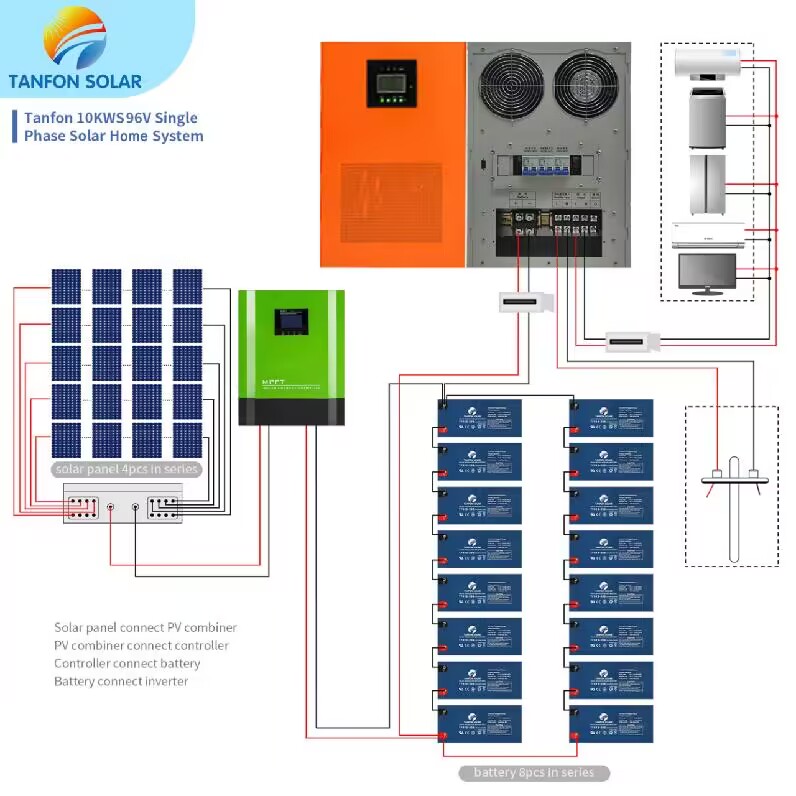Top 10 Solar Project Solution Factory In China
A 10 kW solar power system is a significant investment that can provide a substantial amount of renewable energy to power various loads. So, what exactly can a 10 kW solar power system support? Let's delve into the details.
Firstly, it's important to understand what a 10 kW solar power system comprises. Typically, it includes solar panels, an inverter, a charge controller, and batteries (if you opt for energy storage). The solar panels collect sunlight and convert it into direct current (DC) electricity, which is then converted into alternating current (AC) electricity by the inverter. The charge controller regulates the flow of electricity from the solar panels to the batteries (if present), while the batteries store excess energy generated during the day for use at night or during periods of low sunlight.

Now that we know what a 10 kW solar power system consists of, let's explore what loads it can support. A 10 kW solar power system is capable of providing enough energy to power a medium-sized home or small business. It can support loads such as lighting, appliances, computers, televisions, and air conditioning units. However, the number of loads it can support at once will depend on various factors, such as the energy efficiency of the loads, the time of day, and the weather conditions.

For instance, a 10 kW solar power system can power a 1.5-ton air conditioning unit for around 4-6 hours per day, depending on the location and time of year. It can also power a refrigerator, a washing machine, a dishwasher, and several lights and fans simultaneously. However, it may not be able to power heavy-duty loads such as electric water heaters, electric cooktops, or electric ovens, which consume a lot of energy.
In addition to powering loads directly, a 10 kW solar power system can also feed excess energy back into the grid, earning you credits or payments from your utility company. This is known as net metering and can help offset the cost of your electricity bill.
In conclusion, a 10 kW solar power system can support a wide range of loads, including lighting, appliances, and air conditioning units, making it a suitable investment for medium-sized homes or small businesses. However, it's essential to consider various factors when determining the exact loads it can support at any given time. Overall, investing in solar power is an excellent way to reduce your carbon footprint, save money on energy bills, and contribute to a more sustainable future.
The King of the Democratic Republic of the Congo has provided a solar energy storage power station system for the village of Bunkeya to meet the electricity needs of 2500 small households in the village. As the village currently lacks access to the grid, the King requested the design of a 1MW solar panel system paired with a 1.8MWh lithium battery storage system to power the entire village.
